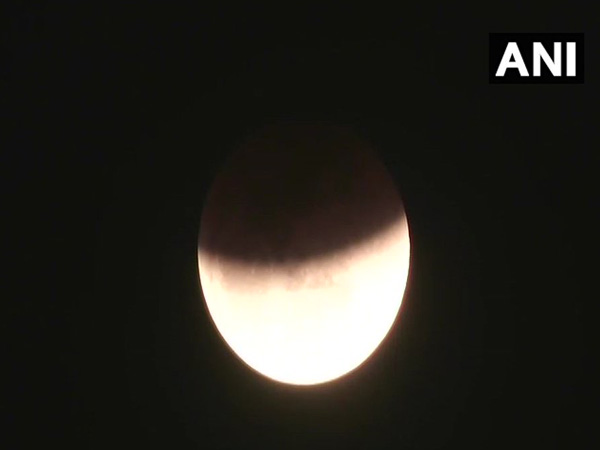Bengaluru: Thousands of stargazers from Bengaluru flocked to the Nehru Planetarium in the city and other open spaces to catch a glimpse of the rare celestial spectacle when the Moon appeared brighter and turned red during the lunar eclipse on Wednesday.
“This lunar eclipse is special because a supermoon (when Moon appears larger than usual when its closest to Earth), blue Moon (second full Moon of each month) and blood Moon (Moon appears red during eclipse) will all coincide at once,” the Director of Nehru Planetarium Pramod G. Galgali told IANS here.
The planetarium in the city centre had hundreds of children, students and adults queuing up to view the once in a Blue Moon event clearly through telescopes and binoculars.
The Indian Institute of Astrophysics here had also set up few telescopes in open spaces for public viewing of the eclipse, which began at about 4.21 p.m. and is to continue till 9.38 p.m., out of which the super blue blood Moon was visible for over an hour.
The rare spectacle, visible to the naked eye, is said to be occurring for the first time since 1982, when a blue Moon and total lunar eclipse together was last visible to India.
Not just a visual treat, but the celestial spectacle was an opportunity for astronomers to study Earth’s natural satellite, the Moon.
“The lunar eclipse would give scientists a special opportunity to study the Moon using the astronomer’s equivalent of a heat-sensing, or thermal camera,” NASA said in a statement earlier.
The Moon, which goes around the Earth in an elliptical orbit, gets closest to the Earth at one point — known as perigee.
“When the Moon is in perigee, it appears nearly 14 per cent bigger and brighter than usual. This is known as a supermoon,” Galgali explained.
It is also the second full moon of the month, commonly known as a “blue moon.” The last full moon of the month was on January 2.
The Moon bore a reddish appearance as it entered the Earth’s darker shadow — umbra — giving it the name “blood Moon”.
Several Hindu temples were shut across the state on Wednesday, with many devout Hindus staying away from eating till the end of lunar eclipse, as it is feared to be inauspicious.
Renowned Hindu worship places in Karnataka like Manjunatheshwara Temple in Dharmasthala, about 300 km to the west of Bengaluru, Krishna Mutt in Udupi, about 400 km from here, were shut till the end of the eclipse at about 9.30 p.m.
IANS

